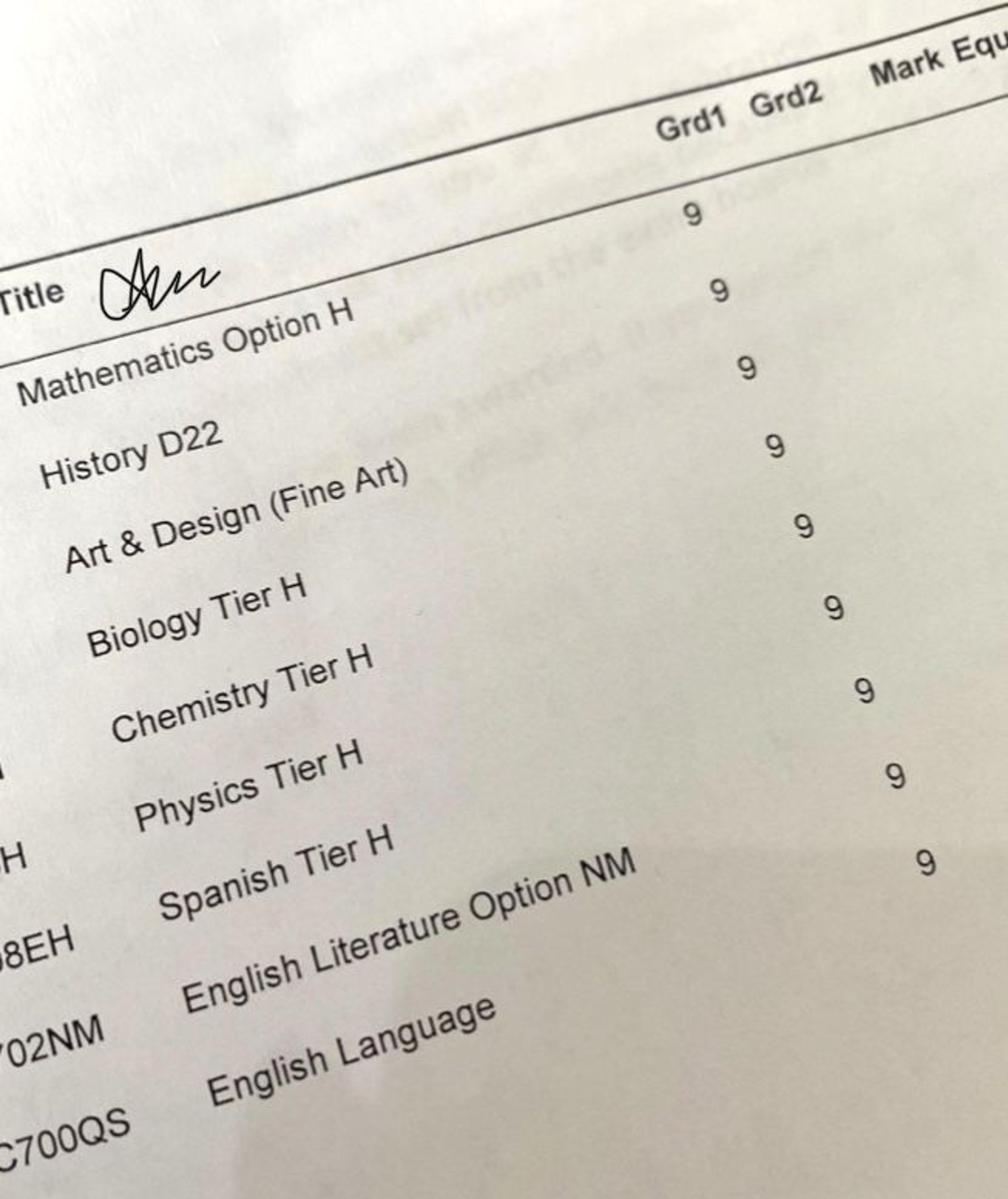
GCSE Results 2025: Dates, Grades, Appeals & Next Steps Explained
Find out everything about GCSE Results 2025 — key dates, grade boundaries, appeals process, resit options, and what to do next. A complete guide for UK students and parents.
GCSE Results Day can be exciting, nerve-racking, and sometimes confusing — for both students and parents.
If you’re wondering how the process works, what the grades mean, and what to do if things don’t go as planned, this guide will walk you through everything step-by-step.


Key Dates for GCSE Results 2025
21st August 2025 – GCSE Results Day
4th September 2025 – Deadline to request a priority copy of a marked paper
25th September 2025 – Deadline to request a review of marking
Number Old Grade Equivalent
9 A* (highest possible)
8 High A / low A*
7 A
6 B
5 Strong pass (high C / low B)
4 Standard pass (C)
3 Between D and E
2 Between E and F
1 Between F and G U Unclassified
GCSE Grades Explained (9–1 System)
Here’s how the numbers compare to the old letter grades:
📌 Note: Wales, Scotland, and Northern Ireland use different grading systems.
Why the New Grading Scale Exists
The 9–1 scale was introduced to better distinguish top-performing students.
Grades 7–9 now cover what used to be A and A*, but only around 20% of students achieving a 7 or above will secure a grade 9 — making it a truly exceptional result.
What Counts as a Pass?
Grade 4 = Standard Pass
Grade 5 = Strong Pass
A grade 4 in all subjects means a student has officially passed, but many sixth forms and colleges require a 5 or 6 for certain courses. Knowing the entry requirements for future plans early can prevent stress later on.
The Role of Mock Exams
Mocks are one of the most effective preparation tools for GCSEs. They:
Simulate real exam pressure
Highlight weaker areas
Improve time management
While mocks are powerful, they’re not the only way to revise. Practice papers, active recall, spaced repetition, and targeted subject tutoring can make a huge difference too.
Results Day: What to Expect
Most students collect their results from school in the morning. Some schools also release results online — check in advance so you know the process.
It’s natural to feel anxious while waiting. Encourage students to have coping strategies — whether that’s deep breathing, talking to friends, or remembering that one set of grades doesn’t define their worth or future.
What the Results Mean
7–9 = Top grades, with 9 being the rarest
5–6 = Strong pass
4 = Standard pass
Below 4 = Not a pass
Lower grades don’t mean the journey is over — just that the route may look a little different.
When Will Certificates Arrive?
Certificates are usually sent to schools about three months after results day. Even without the certificate in hand, students can start planning their next steps immediately.
If Results Are Disappointing
If grades aren’t what was hoped for:
Give it time — avoid rushing into appeals straight away.
Offer reassurance — many successful people didn’t follow a perfect academic path.
Make a plan — whether that’s resits, alternative courses, or new goals.
Resilience here is just as important as the grades themselves.
Appealing GCSE Grades
If you believe there’s been an error:
Ask the school to review the grade.
If needed, request the school to ask the exam board to re-mark.
As a final step, Ofqual can review the case.
Resitting GCSEs
Resits aren’t a failure — they’re a second chance.
Most subjects: Resit during the next exam season (summer 2026).
Maths & English: Extra resit opportunity in November 2025 (results in January 2026).
Many students benefit from focused resit tuition to target problem areas and rebuild confidence.
Life After GCSEs
Sixth Form Entry: Most require at least a grade 4 in all subjects, but competitive courses may ask for higher.
University Applications: Some universities look at GCSEs (especially for competitive degrees), others focus mainly on A-levels. Always check entry requirements early.
Final Thoughts
Results Day is just one step in the bigger picture of education. Whether you’re celebrating high grades or planning a second attempt, the key is to keep moving forward.
If you or your child would like tailored help — whether for improving grades, preparing for resits, or getting a head start on A-levels — our wide variety of GCSE programmes are designed to build both skills and confidence.
📩 Book a call or visit the courses tab — it’s never too late, or too early, to take the next step.






